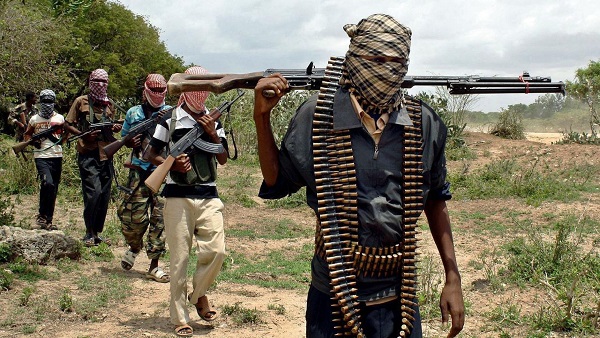The Peril of Legitimising Banditry in Northern Nigeria

In recent months, several states in Northern Nigeria, notably Katsina, Zamfara, Kaduna, and Sokoto, have attracted attention for entering into peace deals with armed bandit groups. Reports suggest that some of these negotiations have involved notorious warlords such as Bello Turji, who himself has released videos confirming the talks. This development raises deep concerns about the direction of security management in the region.
Equally troubling is the involvement of prominent community figures. A well-known Kaduna-based Islamic cleric has been featured in media interviews and viral audio clips openly discussing his role in these engagements. On the surface, dialogue with violent actors might appear pragmatic. Contemporary security practice does indeed combine kinetic measures, involving the use of force, with non-kinetic measures such as dialogue, amnesty, rehabilitation, and community engagement.
Nigeria’s counter-insurgency against Boko Haram has, at different times, combined force with deradicalisation and reintegration. Internationally, Colombia’s peace deal with the FARC guerrillas shows how structured dialogue, when carefully designed and state-led, can complement military strategies. These models demonstrate that peace-building is not only about the battlefield but also about creating pathways for reintegration.
The current experiment in Northern Nigeria, however, falls far short of these standards. Negotiations are neither coordinated by the state nor conducted within a professional framework. Instead, they are largely led by community leaders and clerics, often framed as efforts to ensure farmers can access their farmlands. Security agencies, by their passive endorsement or occasional participation, have inadvertently lent legitimacy to such initiatives.
This approach is dangerous. Engagement with armed groups should be discreet, intelligence-driven, and guided by moral and legal principles. What is happening now is the opposite: overt bargaining that risks emboldening criminals, undermining justice, and alienating victims who have suffered grievously at the hands of bandits.
The moral cost of such gestures cannot be overstated. Publicly courting warlords is a disservice to those who continue to mourn murdered relatives, suffer displacement from ancestral homes, or struggle to rebuild shattered livelihoods. Instead of weakening armed groups, such negotiations often reinforce their power. Many families live in fear, with children traumatised by constant attacks. In some communities, the sound of motorcycles still triggers terror, as it often signals the arrival of bandits.
The consequences of this approach are already evident. Renewed attacks have been reported in states where “peace talks” were held. In Kaduna and Kano, violent crimes such as phone snatching and armed robbery have become commonplace. Viral videos of youths openly brandishing weapons after the death of a notorious thug underline the danger of normalising criminality. When the state fails to punish crime but appears to reward outlaws, society absorbs the message that lawlessness pays.
Nigeria has faced this cycle before. In Zamfara, peace deals with bandits collapsed within weeks, with criminals quickly returning to kidnapping after collecting incentives. In the Niger Delta before the 2009 amnesty, splinter militant groups exploited dialogue to escalate demands, worsening insecurity. Beyond Nigeria, Pakistan’s repeated ceasefire agreements with the Tehrik-i-Taliban Pakistan (TTP) provided militants with space to regroup and expand, leading to even more violence.
Northern Nigeria risks repeating these mistakes if it continues to openly legitimise bandits. To be clear, non-kinetic measures are indispensable to any comprehensive security strategy. However, they must be strategic, conditional, and properly coordinated. Dialogue should be covert and intelligence-backed, while amnesty must require verifiable disarmament, surrender of weapons, and accountability. The state must never extend legitimacy to killers in a way that signals weakness.
It is also important to recognise that banditry differs from ideological insurgencies. Unlike Boko Haram or other extremist movements, bandits are primarily motivated by profit through extortion, kidnapping, and terror. They operate as criminal cartels rather than political rebels. Any engagement with them should therefore be grounded in law enforcement and justice, not political concessions.
A sustainable response requires a calibrated mix of military operations to deny safe havens and targeted non-kinetic programmes to reintegrate repentant foot soldiers, without glorifying or rewarding warlords. This approach should be proactive rather than reactive, aiming to dismantle criminal networks rather than empower them through misguided negotiations.
Northern Nigeria is not without resources to chart a different path. Its cultural and religious heritage offers deep wells of authority that can be used to restore social order. Religious and community leaders must shift away from transactional deals with criminals and instead champion the reassertion of moral values and the sanctity of life. The Northern Governors Forum, in particular, must rise beyond rhetoric and craft a coordinated, regional response.
Banditry thrives in environments marked by poverty, illiteracy, and youth disaffection. Security operations alone will not resolve these underlying issues. Northern governors must adopt a coordinated regional strategy that prioritises education and agriculture. Education empowers youth, dismantles extremist narratives, and provides alternatives to crime. Agriculture, if revitalised through mechanisation, irrigation, and agro-processing, can create jobs, enhance food security, and reduce recruitment into criminality.
No single state can achieve this in isolation. Northern governors must pool resources, harmonise policies, and strengthen regional institutions to create viable alternatives to violence. They must also collaborate closely with federal security agencies to deliver consistent pressure on criminal networks.
If these steps are taken, the region can not only contain banditry but also lay the groundwork for long-term stability and development. Peace that is bought by empowering criminals is an illusion. Genuine peace must rest on justice, accountability, and opportunity. Only then can Northern Nigeria reclaim its dignity and free itself from the grip of banditry.
Mustapha Umar, Department of Mass Communication, University of Maiduguri.

